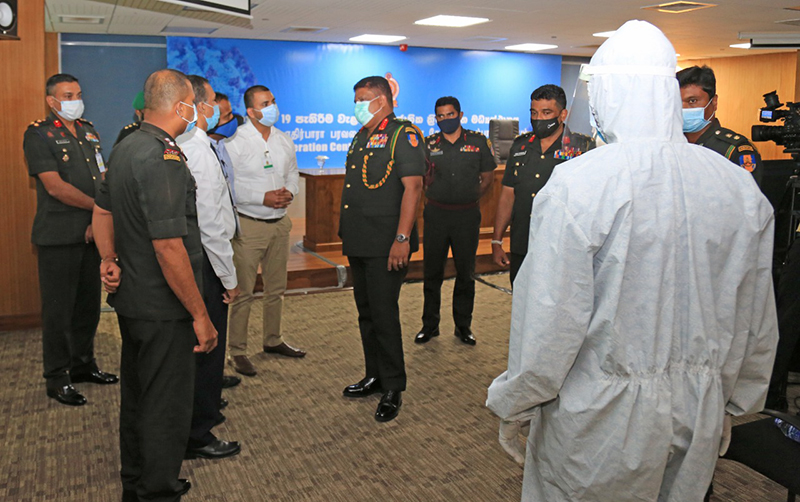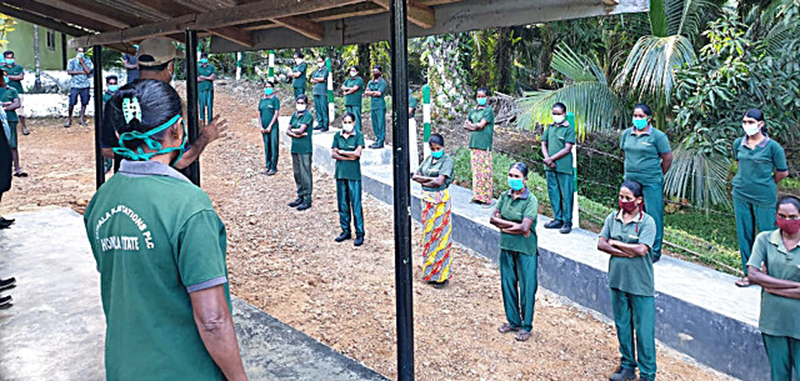
ComBank to help businesses overcome obstacles to e-commerce

Launches revolutionary platform ‘ComBank Simple Pay’ for first time in Sri Lanka, enabling SME entrepreneurs to digitise businesses
Access to e-commerce has been dramatically simplified for small businesses by the Commercial Bank of Ceylon, with the launch of a new platform for the first time in Sri Lanka, branded ‘ComBank Simple Pay’ in yet another demonstration of the Bank’s commitment to the SME sector.
This product is the Sri Lankan version of the Mastercard product “Simplified Commerce” which was launched by the Bank for the first time in South Asia.
Sri Lankan entrepreneurs can now create their own online store without spending large sums on web development and designing. They can sell products, accept electronic payments and significantly enhance their business opportunities, thanks to the Bank’s e-commerce solution to digitise businesses.
Salient features of “ComBank Simple Pay” include e-invoices which allow businesses to send their customers branded invoices, setting up of recurring payments and selling products and services directly through social media. The platform will enable the merchants to get paid securely and to receive an overview of all invoices which helps to track outstanding invoices and to periodically send reminders. It also supports accounting integration by enabling the downloading of data for a prescribed period which can be imported to accounting platforms. The availability of a payment dashboard facilitates the reviewing of latest transaction status and overview of the cash flow. The system is compliant with the Payment Card Industry Data Security Standard (PCI-DSS) certification as required by the payment schemes.
Commenting on the introduction of ‘ComBank Simple Pay,’ Commercial Bank Chief Operating Officer Mr Sanath Manatunge said: “As one of the biggest lenders to the SME sector, Commercial Bank continuously explores ways of empowering local entrepreneurs. We believe ‘ComBank Simple Pay’ will strengthen this relationship and help further enhance the contribution of SMEs to the economy.”
“Many small businesses are deterred from e-commerce by a lack of knowhow and the cost of maintaining an online store,” Mr Manatunge added. “ComBank Simple Pay addresses both these concerns and is backed by the Bank’s technical expertise and support, making it possible for even the smallest of businesses to take their offering online.”
‘ComBank Simple Pay’ can be accessed via iOS and Android mobile applications too. This allows merchants to accept payments on-the-go, send e-invoices and monitor payment activity in real time. The system is optimised for mobile usage allowing users to access it through smart phones.
As its name implies, ‘ComBank Simple Pay’ simplifies the process of expanding a business to the web by providing an easy-to-use solution, enabling a single point of contact between small and medium enterprises and their customers, helping grow the entrepreneurs’ business portfolio, customer retention and loyalty by enabling easy access. It also helps maintain market share by securing the business’ position amidst competition and staying visible and easily available.
Besides enabling entrepreneurs to begin e-commerce without having performed a single line of coding, ‘ComBank Simple Pay’ also enables SMEs to embark on social commerce by sharing and selling their products and services directly on social media channels. The online store can be updated by the merchant with new offerings as and when they become available.
The first Sri Lankan Bank to be listed among the Top 1000 Banks of the World and the only Sri Lankan bank to be so listed for nine years consecutively, Commercial Bank is celebrating its 100th anniversary this year. The Bank, which won more than 50 international and local awards in 2019, operates a network of 268 branches and 865 ATMs in Sri Lanka.
Commercial Bank’s overseas operations encompass Bangladesh, where the Bank operates 19 outlets; Myanmar, where it has a Representative Office in Yangon and a Microfinance company in Nay Pyi Taw; and the Maldives, where the Bank has a fully-fledged Tier I Bank with a majority stake.






